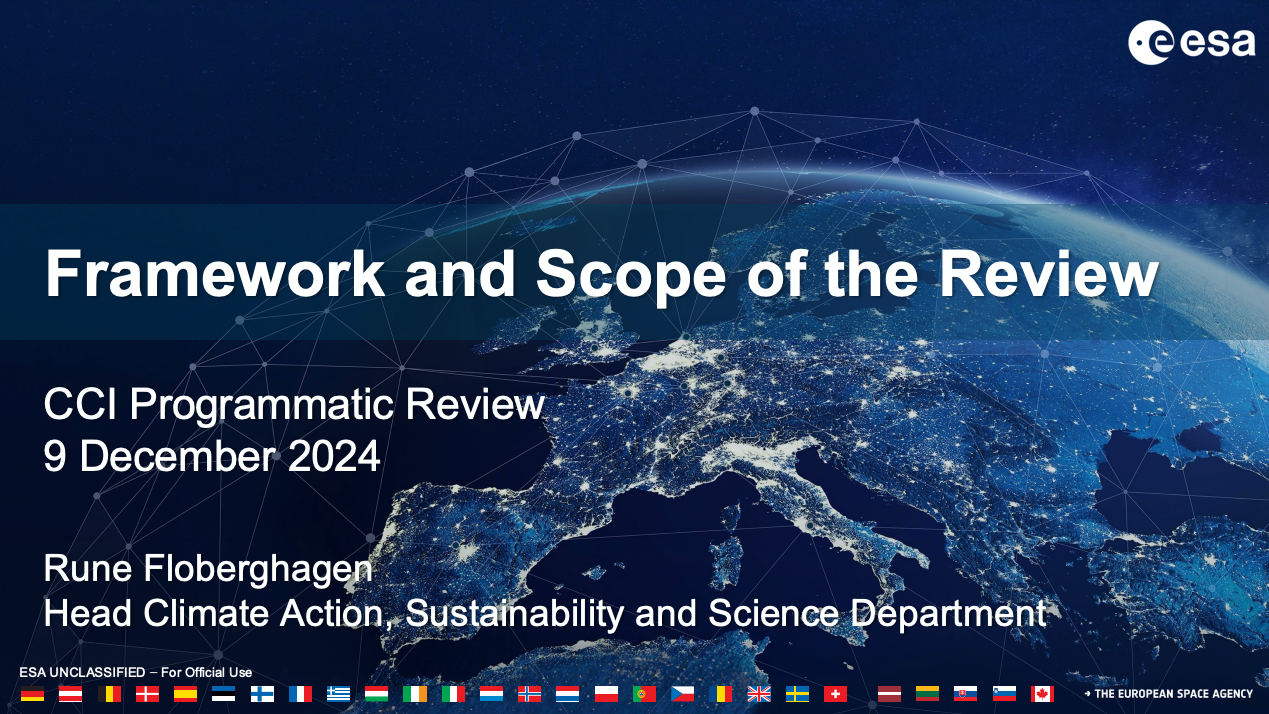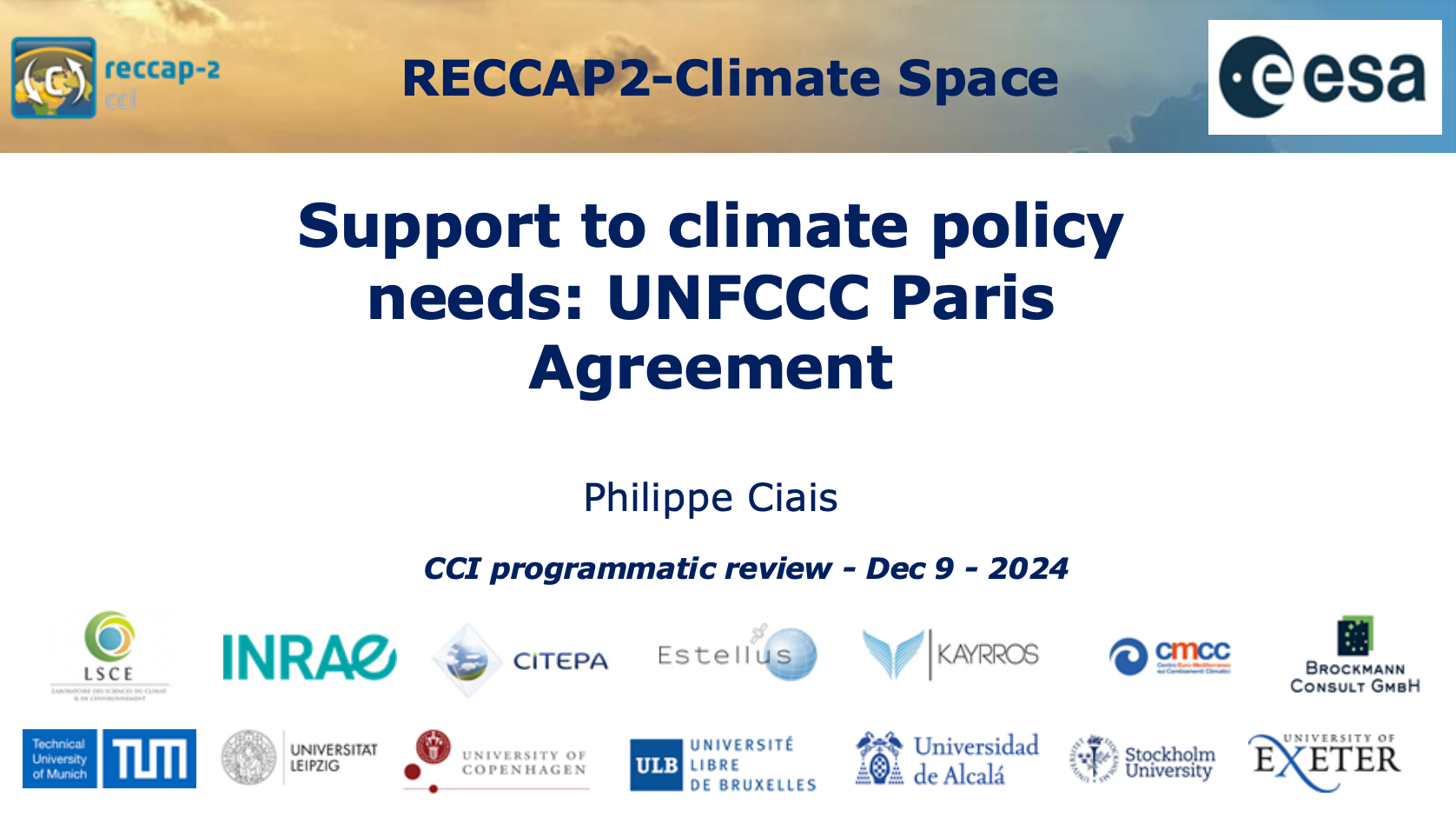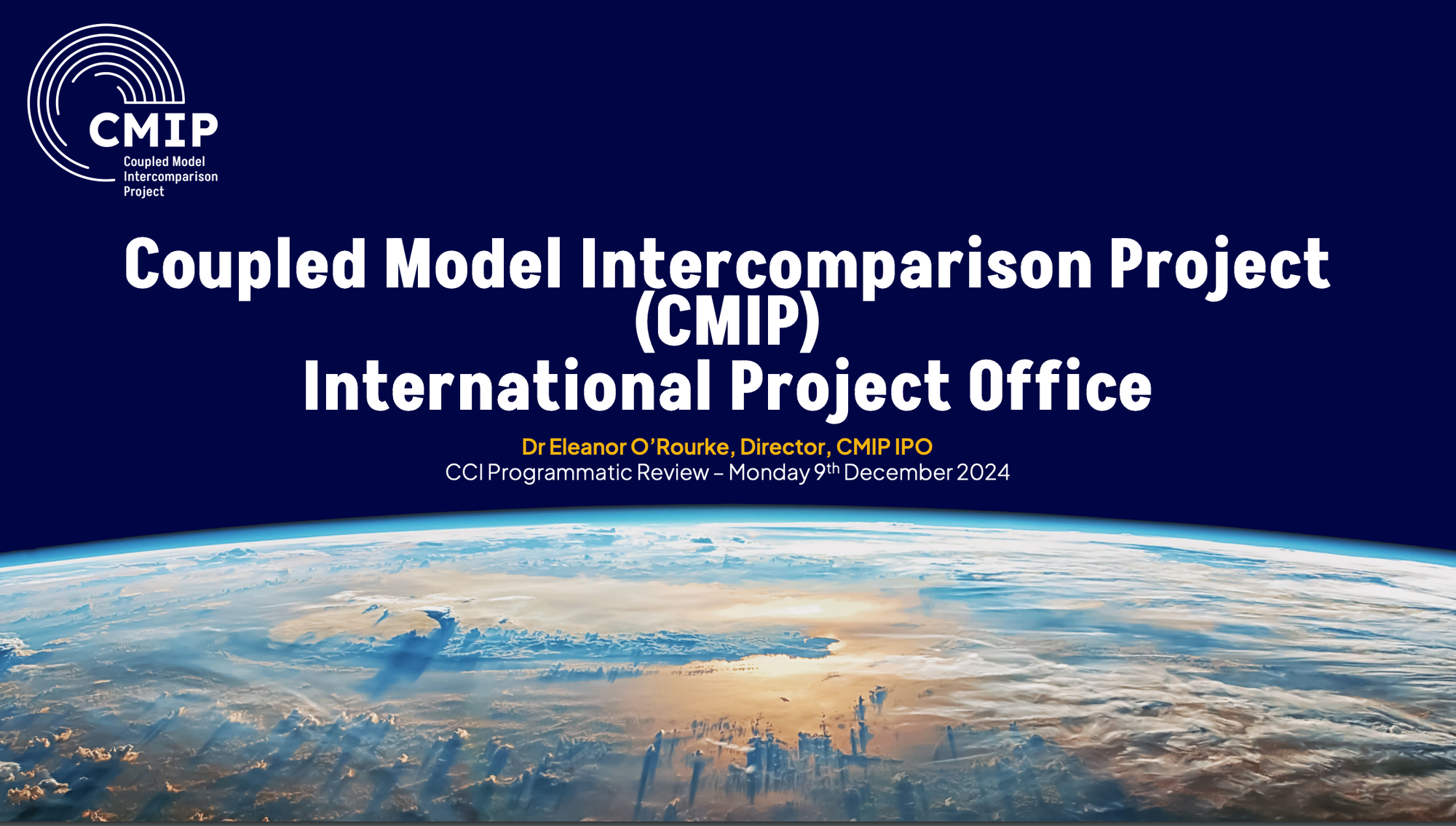The programmatic review focused on the CCI's implementation status, ongoing progress, and future activities in the lead-up to the ESA Ministerial Council in 2025. The review provided essential briefings to ESA Member States, with the goal of updating them on the status of the Initiative and scientific impact in understanding and addressing climate change through Earth observation.
Scope and Focus of the Review
The review covered Phase 2 of the Climate Change Initiative (CCI) and new activities under the ‘CLIMATE-SPACE’ programmes and was structured around four core research and development themes, that aim to strengthen systematic climate observation, climate science, related applications and support to policy-making.
Presentations on the programmatic and strategic framework and implementation status were provided by ESA representatives, while leading European scientists contributed valuable input to the discussion. All of the review presentations are available online.
Theme (I) The Excellence Base: Essential Climate Variables
This theme focuses on ESA's ongoing projects dedicated to generating global, satellite-derived time-series that address GCOS-defined Essential Climate Variables (ECVs), which are critical for systematic monitoring of Earth's climate system. These variables are grouped into four key areas:
- Cryosphere (ice sheets, glaciers, snow, and frozen ground)
- Land (vegetation, soil moisture, land cover)
- Ocean (sea surface temperature, sea level, ocean salinity)
- Atmosphere (greenhouse gases, aerosols, ozone)
Theme (II) Science Highlights: Key Scientific Activities
The second theme highlights key scientific initiatives addressing urgent climate issues, as defined by GCOS, WCRP and IPCC, including:
- Support to the UNFCCC Paris Agreement: ESA’s role in supporting international climate goals
- Use of Earth Observation for Tipping Points Research: Investigating critical climate thresholds that could lead to irreversible climate changes
- CCI Fellowships: Supporting the next generation of climate scientists through collaborative research opportunities
Theme (III) Linking Climate Modelling and Observations
This theme emphasises the integration of climate observations with climate modelling to improve predictions of future climate conditions. Key activities include:
- The Climate Modelling User Group (CMUG), which brings together experts to discuss the latest in climate modelling techniques and data assimilation
- The WCRP’s Coupled Model Intercomparison Project (CMIP), a collaborative effort to improve climate models and their alignment with real-world observations.
Theme (IV) Knowledge Exchange and International/Stakeholder Activities
The final theme focuses on knowledge exchange and covered on-going improvements and development of satellite-derived climate data curation and management; outreach and education activities among scientific and modelling communities, policy makers and the wider public
Supporting the international climate network
External stakeholder feedback highlighted the significant international impact of the Climate Change Initiative (CCI), as noted by Han Dolman, Chair of the Climate Science Advisory Board (CSAB) and Director at NIOZ. He commended the CCI's contributions to international climate bodies including the WCRP, CEOS, and GCOS, and particularly progress in addressing ECVs using space-derived observations. Professor Dolman also commended the CCI’s role in bridging science and society, citing the RECCAP-2 project for its support of national greenhouse gas reporting to the UNFCCC, exploiting multiple ECVs to enhance understanding of sea level rise, and on-going improvements to climate modelling and subsequent confidence to predictions of future change.
Professor Andrew Shepherd of Northumbia University added to the review by highlighting the contribution of the CCI to several key lines of physical evidence relating to the IPCC’s Sixth Assessment Report in support the UNFCCC Paris Agreement.
Feedback and preparing for the 2025 ESA Ministerial Council
A summary will be presented to the ESA Programme Board for Earth Observation in February 2025. Serving as a key reference, the document will outline the CCI's progress, challenges, and as the Agency prepares for the ESA Ministerial Council in 2025, inform next steps in the context of ESA's broader Earth Observation strategy.




